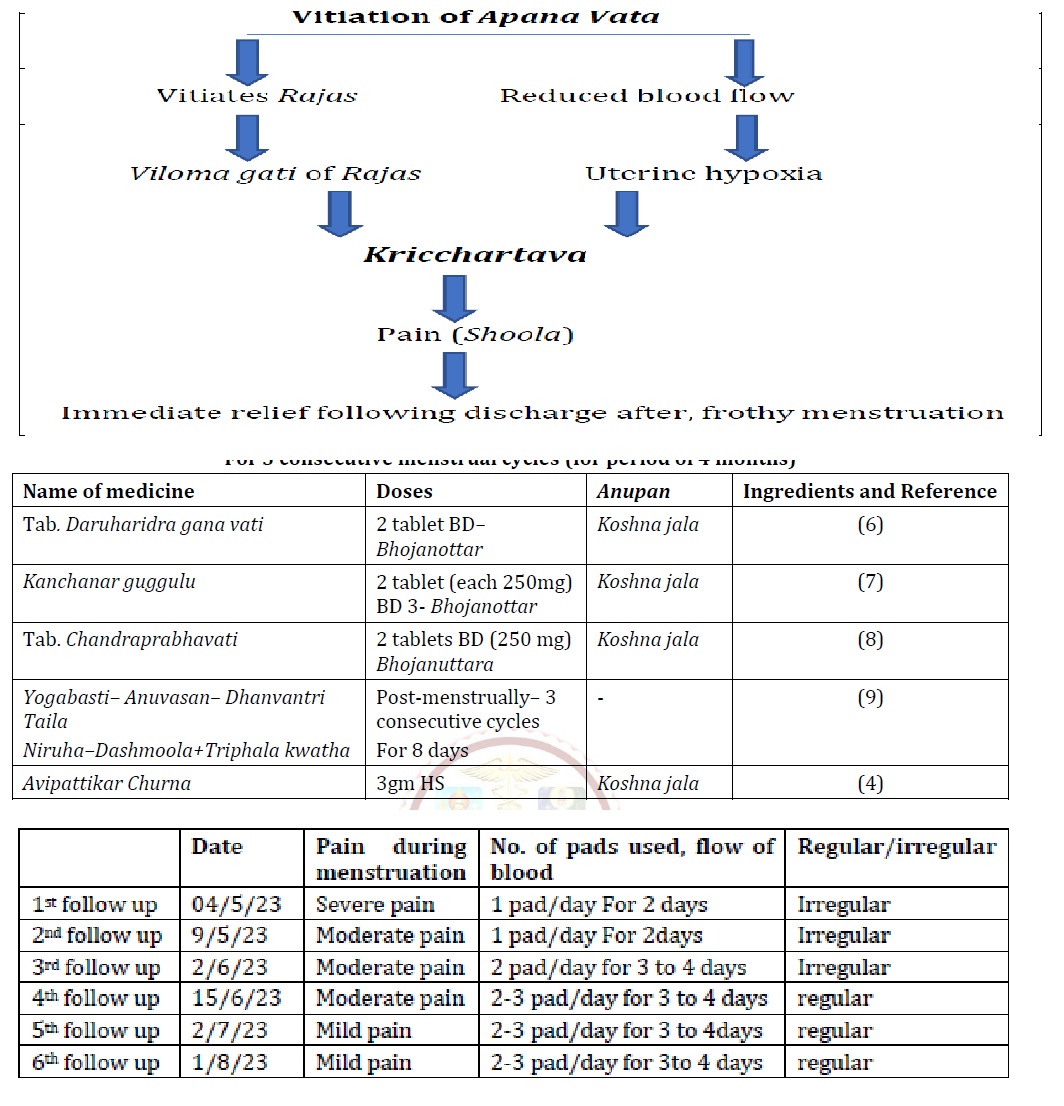Ayurvedic Management of Adenomyosis
DOI:
https://doi.org/10.47070/ayushdhara.v10i6.1452Keywords:
Basti, Udavartini Yonivyapada, Vatashamaka, Anulomaka, LekhaganaAbstract
Adenomyosis is a gynaecologic condition characterized by ectopic endometrial tissue within the uterine myometrium. Adenomyosis, if not treated can lead to endometriosis, and hence can lead to more complications and hysterectomy might be the option. But by using Ayurvedic formulation with properties like Anulomaka, Vatashamaka, Lekhagana, Rakta prasadaka etc properties patient got significant relief from pain and irregular menses along with improvement in quality of life. Uterine adenomyosis is a benign condition in which endometrium like epithelial and stromal tissues appear in myometrium, surrounded by hypertrophic smooth muscle. Endometrial cells from the lining of endometrial cavity, migrate; most commonly into the posterior side or back wall of uterus, as these cells respond to monthly hormonal change. Severity and symptoms associated with adenomyosis, directly proportional to degree of involvement and penetration of uterine muscle. Adenomyosis can cause heavy menstrual bleeding (cyclic or acyclic) or scanty menstruation (oligomennorhoea or hypomenorrhoea) along with dysmenorrhoea. So in this case study patient having adenomyosis presented symptom of dysmenorrhoea with scanty menses and irregular menses. In this study there is Sanga of Doshas predominantly of Vata- kapha, so Lekhana is accepted and Vatavaigunya is present were Mamsa-rakta dusti is present, so Vatanulomana and Rakta prasadan chikitsa is adapted. So adenomyosis can be compared in Ayurveda with Udavartini yonivyapada among 20 Yonivyapada.
Downloads

Downloads
Published
Issue
Section
License
Copyright (c) 2023 AYUSHDHARA

This work is licensed under a Creative Commons Attribution-NonCommercial-ShareAlike 4.0 International License.


